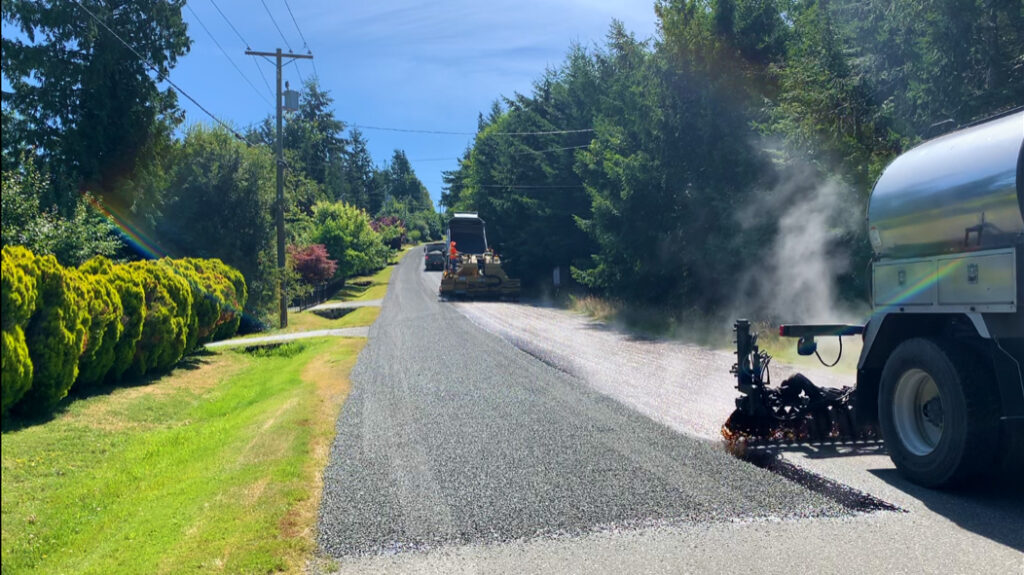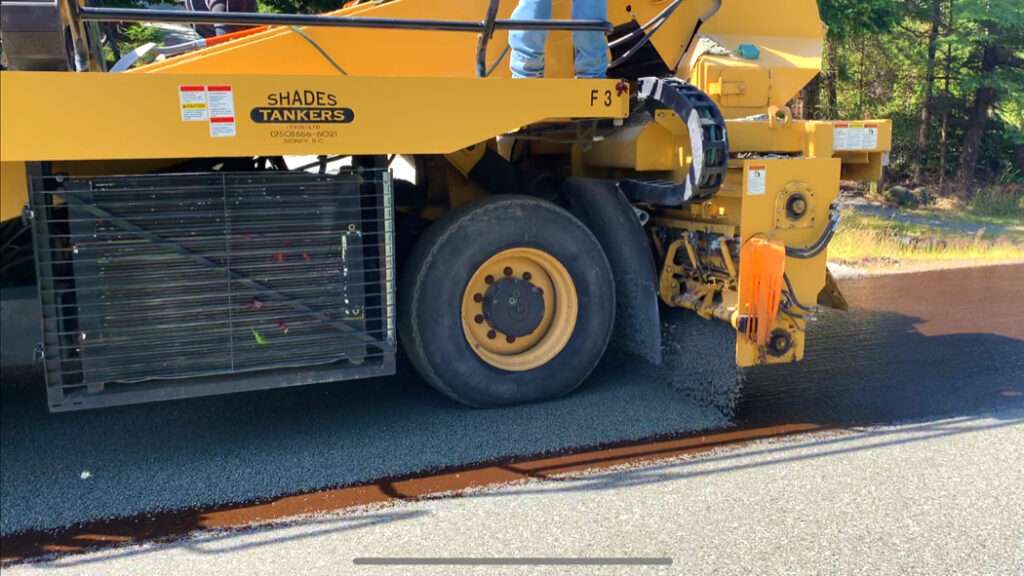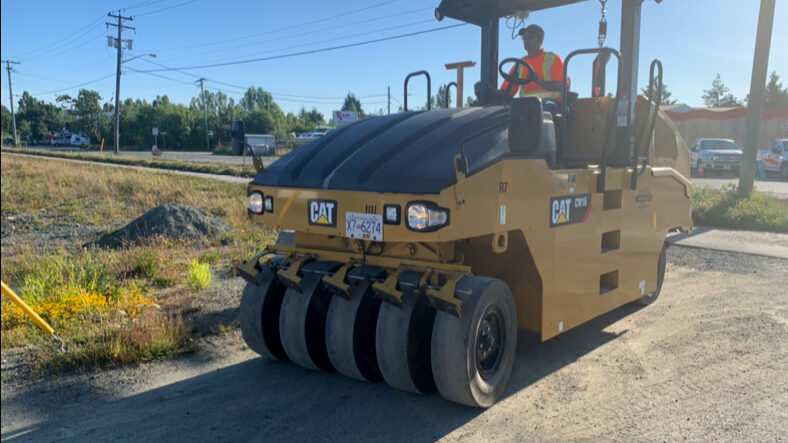Chip Sealing
District Roads
There are two different types of road surfaces in the District of North Saanich, asphalt concrete paving and chip seal paving. The volume of traffic determines which type of surface is applied to a particular road. Approximately 60% of the District’s roads are chip seal paved.
What is chip sealing?
Chip sealing is a pavement surface treatment that combines hot liquid asphalt with fine aggregates (gravel chips and sand). A thin layer of asphalt is sprayed on the road surface, followed by the placement of gravel chips, then sand. Heavy equipment slowly rolls over the aggregates, embedding them into the asphalt for maximum adhesion. This process seals the road surface, protects it from degradation, and extends the life of the road.
When chip sealing is performed on a road surface, the asphalt-gravel mixture takes several weeks to fully cure. Immediately after the road is chip sealed, road users will observe that loose gravel will remain. This loose gravel provides a buffer between vehicles and the newly paved surface to aid in the curing process. The loose gravel is swept up after approximately 3 weeks.
Why does the District perform chip sealing?
Chip sealing is a cost-effective road surface treatment performed throughout Canada on low-volume roadways. The chip sealing process costs about 1/10th that of the asphalt concrete paving process. The District estimates it could cost approximately $19 million to convert chip seal roads to asphalt, requiring a substantial increase in the District’s budget.
What should I do?
Road users are asked to kindly observe the temporary posted speed reduction on the newly treated road surface while the asphalt-gravel mixture solidifies (approximately 3 weeks). The speed reduction is in place to minimize the spread of the gravel chips required to provide optimum conditions for the curing process. As well, lower speeds reduce dust in the immediate area. We realize lowering your speed can cause a bit of a delay and can be frustrating, but we appreciate your patience as we work to build an even better road to get you where you need to go.







